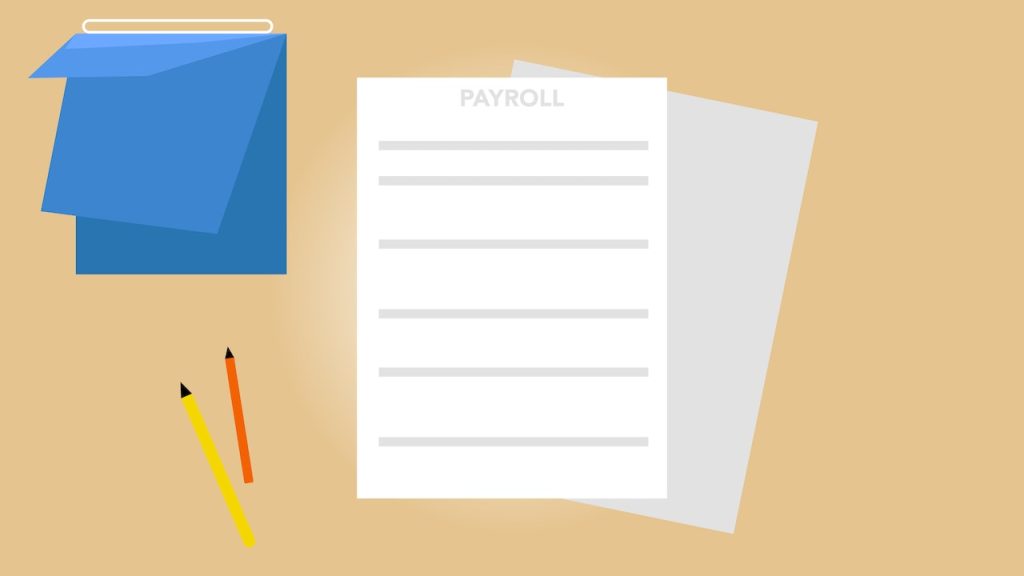Payroll is a crucial aspect of any business, as it ensures that employees are paid accurately and on time. However, many businesses make payroll mistakes that can lead to financial and legal consequences. In this guide, we’ll explore the most common payroll mistakes that businesses make and provide tips on how to avoid them.

01. Misclassifying employees :
One of the most common payroll mistakes is misclassifying employees. There are two main types of employees: exempt and non-exempt. Exempt employees are salaried and are not eligible for overtime pay, while non-exempt employees are hourly and are eligible for overtime pay. Misclassifying an employee can lead to legal consequences, such as having to pay back overtime pay, back taxes, and fines.
To avoid misclassifying employees, it’s important to understand the criteria for exempt and non-exempt employees and to properly classify employees based on their job duties and pay structure.
02. Failing to keep accurate records :
Another common payroll mistake is failing to keep accurate records. It’s essential to keep track of employee hours worked, overtime pay, and other payroll-related information. Failure to keep accurate records can lead to legal consequences and can make it difficult to resolve payroll disputes.
To avoid this mistake, ensure that you have a system in place for tracking employee hours and maintaining accurate records. This can include using timekeeping software, keeping copies of employee pay stubs, and maintaining records of any payroll-related communications.
03. Missing deadlines :
Missing payroll deadlines can result in financial and legal consequences, including fines and penalties. It’s essential to understand when payroll taxes are due and to ensure that you meet these deadlines.
To avoid missing deadlines, set reminders for yourself and create a system to ensure that you have all the necessary information and documents on hand to complete payroll tasks on time.
Read Also : How To Get Advantages And Disadvantages Of Accounting Software?
04. Failing to withhold and remit payroll taxes :
Another common payroll mistake is failing to withhold and remit payroll taxes. Employers are required to withhold federal, state, and local taxes from employee paychecks and remit these taxes to the appropriate government agency.
To avoid this mistake, ensure that you have a system in place to accurately calculate payroll taxes, withhold them from employee paychecks, and remit them to the appropriate government agency on time.
05. Making errors on employee paychecks :
Errors on employee paychecks, such as incorrect pay rates, missed deductions, or incorrect overtime pay, can lead to dissatisfied employees and can also result in legal consequences. It’s essential to ensure that employee paychecks are accurate and that any errors are corrected promptly.
To avoid this mistake, double-check employee paychecks before distributing them and ensure that you have accurate records of employee hours worked and payroll-related deductions.
06. Failing to comply with labor laws :
Finally, failing to comply with labor laws is a common payroll mistake that can lead to legal consequences. Labor laws include regulations related to minimum wage, overtime pay, and employee classification.
To avoid this mistake, stay up-to-date on labor laws and regulations and ensure that your business is in compliance with these laws. This can include reviewing employee job descriptions and pay structures, keeping accurate records of employee hours worked, and staying informed about changes to labor laws and regulations.
Read Also : What Is QuickBooks Online, Pros and Cons ?
07. Not properly handling employee benefits :
Another common payroll mistake is not properly handling employee benefits, such as health insurance or retirement plans. Employers must accurately calculate and withhold employee contributions to these benefits, and ensure that they are properly reported and remitted.
To avoid this mistake, ensure that you have accurate records of employee contributions and employer contributions to benefits, and that you are properly reporting and remitting these contributions to the appropriate agencies.
08. Using outdated software or systems :
Using outdated payroll software or systems can lead to errors and inefficiencies. It’s important to ensure that your payroll system is up-to-date and able to handle your business’s payroll needs.
To avoid this mistake, regularly evaluate your payroll software and systems and ensure that they are meeting your business’s needs. Consider upgrading to newer software or systems if necessary.
09. Not properly tracking employee time off :
Failing to properly track employee time off, such as vacation days or sick leave, can lead to errors in payroll calculations and disputes with employees. It’s essential to accurately track employee time off and ensure that employees are properly compensated for any time off they have earned.
To avoid this mistake, ensure that you have a system in place for tracking employee time off and that you are accurately calculating and reporting this time in your payroll system.
Read Also : What’s better for small business : Weekly, Bi-Weekly or Monthly Payroll?
10. Not properly training payroll staff :
Finally, not properly training payroll staff can lead to errors and inefficiencies in the payroll process. It’s essential to ensure that payroll staff are properly trained and have a thorough understanding of payroll processes and procedures.
To avoid this mistake, ensure that you provide thorough training to payroll staff and that they have access to resources and support to help them handle payroll tasks effectively.
Conclusion :
In conclusion, payroll mistakes can have serious consequences for businesses, including financial and legal consequences, as well as disputes with employees. By understanding the most common payroll mistakes and taking steps to avoid them, businesses can ensure that their payroll processes are accurate, efficient, and compliant with labor laws and regulations. This can help businesses to maintain positive relationships with employees and avoid costly mistakes.
